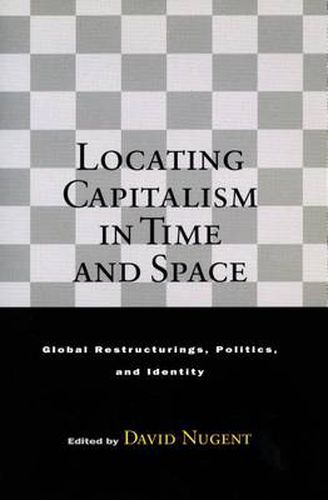Readings Newsletter
Become a Readings Member to make your shopping experience even easier.
Sign in or sign up for free!
You’re not far away from qualifying for FREE standard shipping within Australia
You’ve qualified for FREE standard shipping within Australia
The cart is loading…






The second half of the 20th century saw major restructurings - economic, political, and cultural - taking place in the international arena. The depth and score of these changes prompted anthropologists to rethink many of their most basic assumptions, to problematize issues that have long gone unexamined, and to grapple with new and unique problems. Doing so has left the discipline profoundly unsettled. Existing standards of scholarship and research methodologies have come under attack, key conceptual categories have been called into question, and truths once considered secure have been subjected to severe scrutiny and even ridicule. Seizing upon the opportunity afforded by the contemporary conjuncture of disciplinary crisis and redefinition, this book raises questions about two inter-related aspects of historical process and academic production. The volume contributes to ongoing debates about the degree to which the developments of recent decades represent the advent of a new historical era, a rupture with the past that requires new conceptualizations and logics in order to be understood. In confronting this question, the contributors have assembled a range of materials that place the present period of reconstruction in the context of a broader history and geography of other restructurings. Locating Capitalism in Time and Space also raises questions about the degree to which the scholarship of recent decades represents a qualitative break with that of the past. At issue here is whether one understands the history of academic production as a linear process of intellectual growth punctuated by major breakthroughs in understanding, or as a political process structured by the same kinds of inequalities and struggles that characterize the social worlds that are the object of anthropological analysis.
$9.00 standard shipping within Australia
FREE standard shipping within Australia for orders over $100.00
Express & International shipping calculated at checkout
The second half of the 20th century saw major restructurings - economic, political, and cultural - taking place in the international arena. The depth and score of these changes prompted anthropologists to rethink many of their most basic assumptions, to problematize issues that have long gone unexamined, and to grapple with new and unique problems. Doing so has left the discipline profoundly unsettled. Existing standards of scholarship and research methodologies have come under attack, key conceptual categories have been called into question, and truths once considered secure have been subjected to severe scrutiny and even ridicule. Seizing upon the opportunity afforded by the contemporary conjuncture of disciplinary crisis and redefinition, this book raises questions about two inter-related aspects of historical process and academic production. The volume contributes to ongoing debates about the degree to which the developments of recent decades represent the advent of a new historical era, a rupture with the past that requires new conceptualizations and logics in order to be understood. In confronting this question, the contributors have assembled a range of materials that place the present period of reconstruction in the context of a broader history and geography of other restructurings. Locating Capitalism in Time and Space also raises questions about the degree to which the scholarship of recent decades represents a qualitative break with that of the past. At issue here is whether one understands the history of academic production as a linear process of intellectual growth punctuated by major breakthroughs in understanding, or as a political process structured by the same kinds of inequalities and struggles that characterize the social worlds that are the object of anthropological analysis.